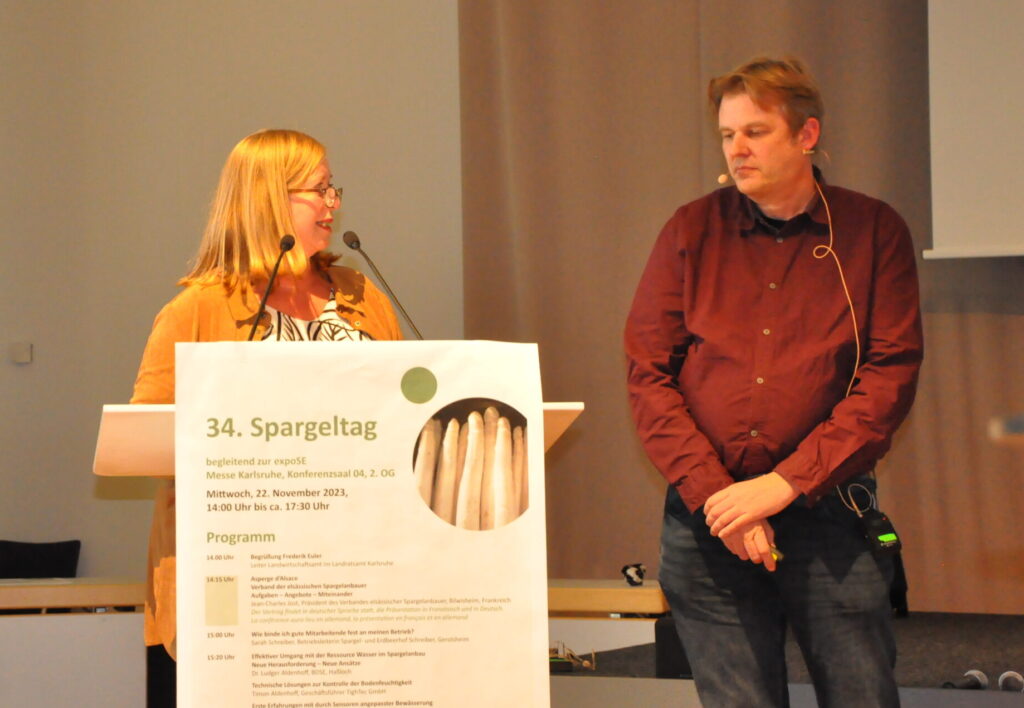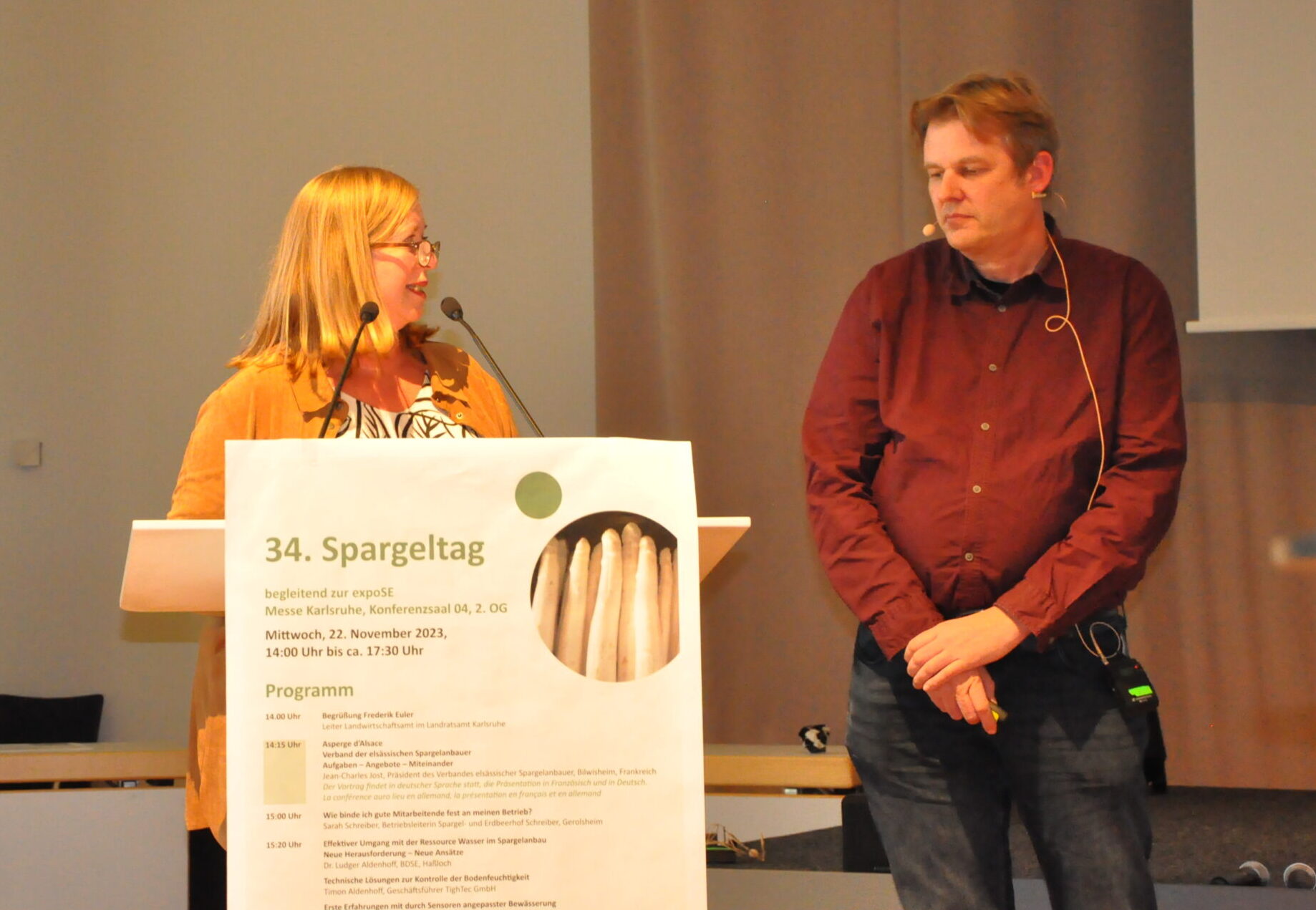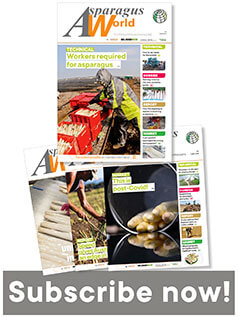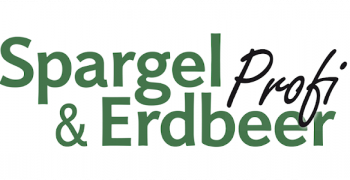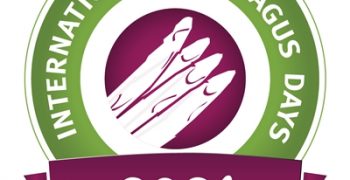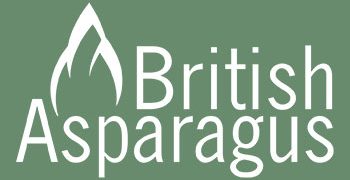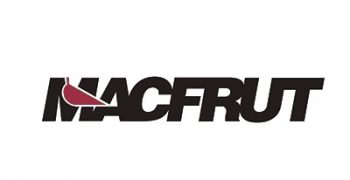Asparagus Day Karlsruhe 2023: a day dedicated to asparagus
The conference hall at the Karlsruhe Trade Fair Centre was well attended and interested parties were able to listen to presentations from international guests and experienced experts. In addition to asparagus cultivation in the neighbouring region of Alsace, one of the main topics was the sustainable irrigation of asparagus plants. In addition, the results of current cultivation trials were presented and the situation of the minimum wage in Europe was explained.
Asperge d’Alsace – Association of Alsatian asparagus growers
Directly on the opposite side of the Rhine, asparagus cultivation plays an important role in Alsace’s agriculture. In Alsace, the total asparagus area of around 565 hectares is currently farmed by 120 producers, although the farms in the south are somewhat larger. Pale asparagus is marketed both via co-operatives and privately from the farm. Jean-Charles Jost, President of the Aperge d’Alsace association, in which 50 farms are organised, presented the association’s marketing strategy together with Philippe Sigrist. For 30 years now, the association’s primary objective has been to support asparagus cultivation in Alsace and to emphasise it as a regional brand with a very distinctive profile. The association’s modern and versatile marketing is exemplary and easily recognisable on social media, on its own website and also on the radio during the season: the traditional and recurring logo can be found on the personalised product labels and all other print media. By working together with cooperation partners from retail and catering, a competition and a season opening for the press, the association creates public awareness and a loyal customer base. Last but not least, the association endeavours to strengthen the «togetherness» of its own members through events at the beginning and end of the season and thus counteract the actual competition.
Results of current cultivation trials were presented
The increased shortage of employees since Covid made it very clear to Sarah Schreiber that intensive efforts to recruit employees were needed. Her company continues to work with local employees and takes into account the skills and opportunities of each individual in order to be well positioned locally.
Climate change has become a concrete and tangible reality in recent years due to hot, dry summers. Even the asparagus plant is reaching its limits without irrigation. In his presentation, Dr Ludger Aldenhoff from the BDSE advisory service uses scientific data to show that irrigating asparagus usually makes sense, but that too much water can also have a detrimental effect on the plants. Timon Aldenhoff and his company Tightec have developed a technical solution to this problem. Rolf Meinhardt from Tannenhof Weiterstadt was also able to report on his experiences with the soil moisture sensor in a two-year asparagus plantation.
In a field trial in Lower Saxony, a comparison was made of the yield potential of asparagus claws from crown plants and pressed soil pots. Nils Kraushaar, asparagus consultant at the Lower Saxony Chamber of Agriculture, accompanied and analysed this trial.
Katja Kuplich, Head of the Social Law Department of the Baden-Württemberg Farmers’ Association, presented the situation regarding minimum wage and ancillary wage costs in the various European countries and also pointed out the differences in the requirements regarding labour law, accommodation and meals, which make comparability difficult. Werner Magoschitz, manager of an asparagus farm in Austria, presented the situation in his own country.
You can find the presentations here.







